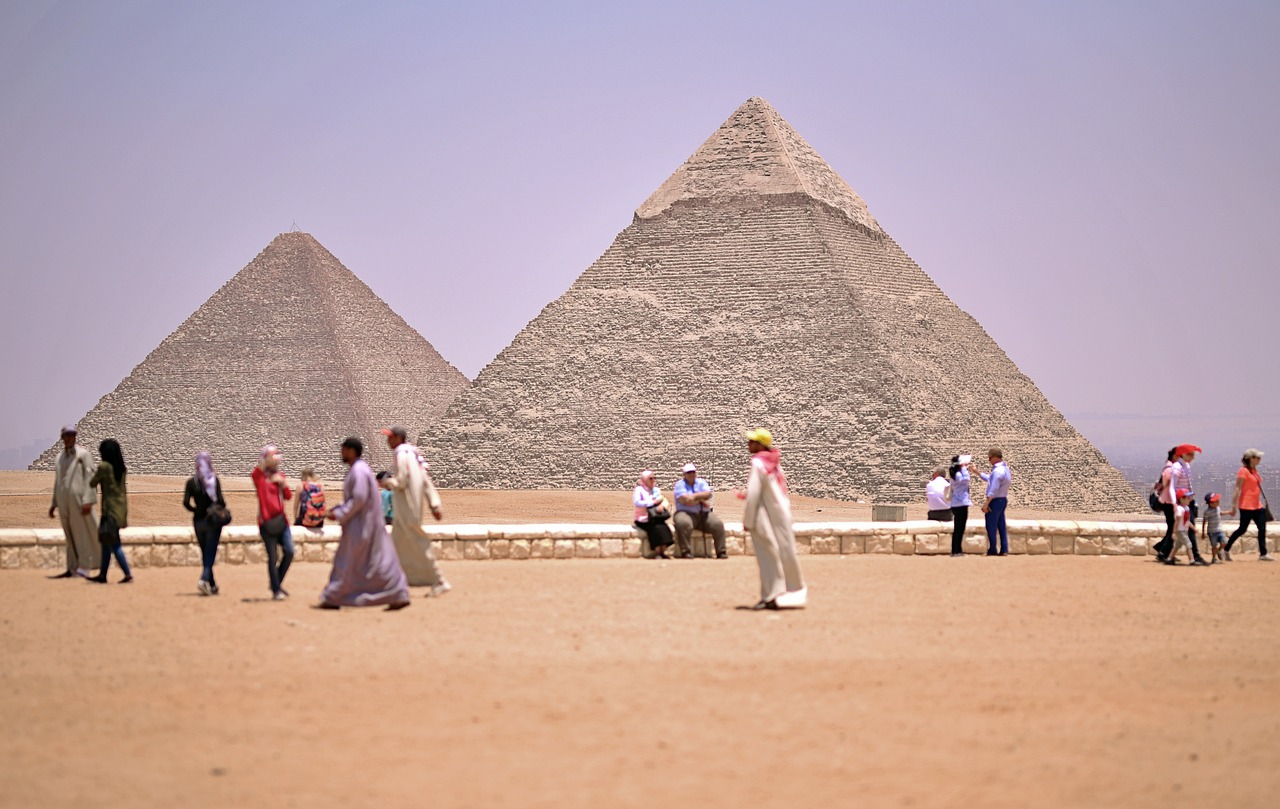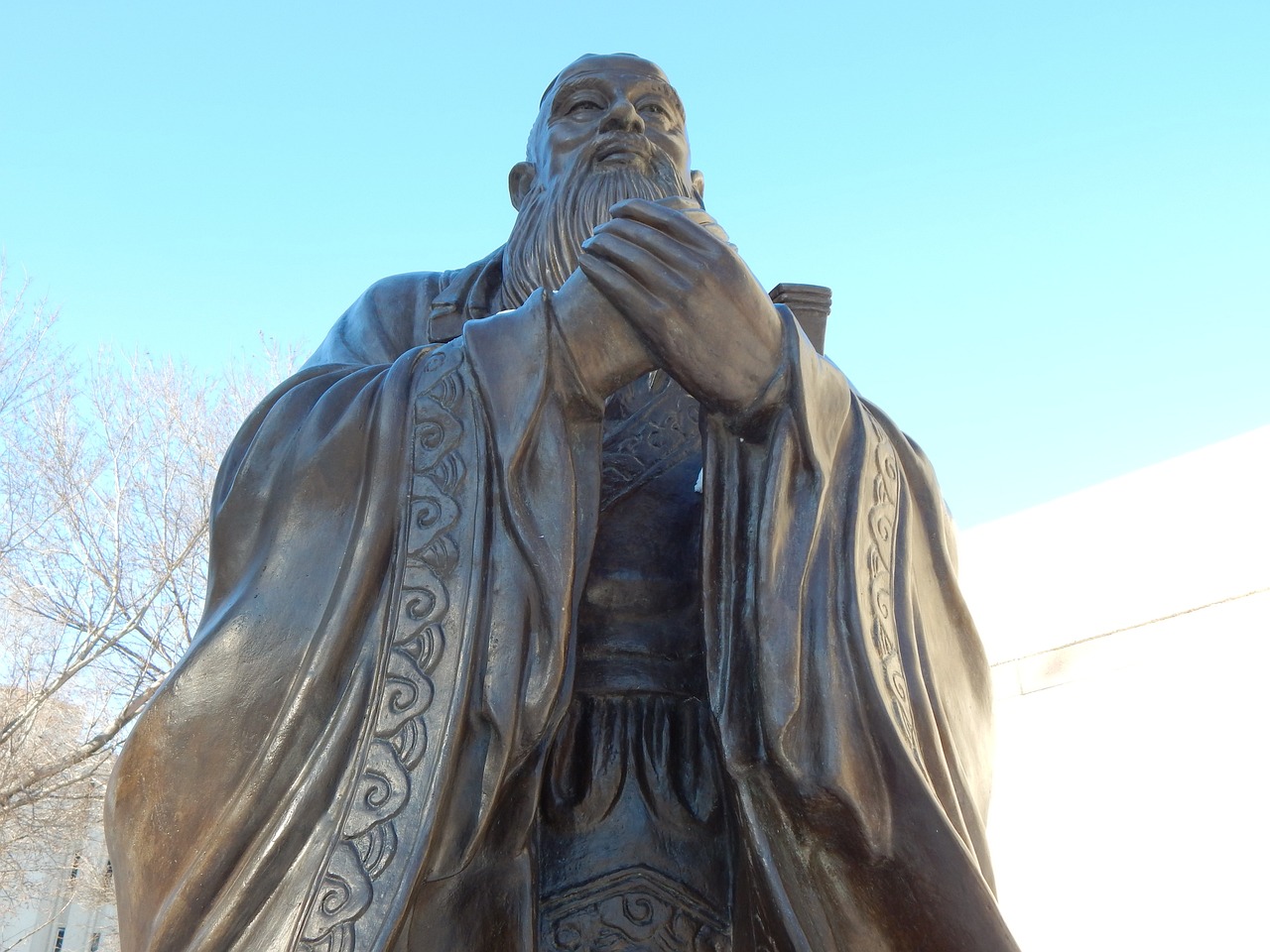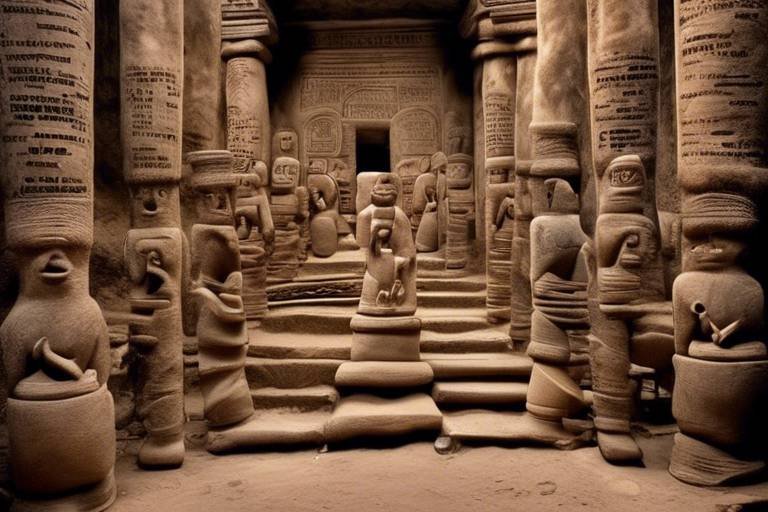The Legacy of Ancient Civilizations in Modern Education
Education is not merely a product of the present; it is deeply rooted in the past, drawing inspiration and knowledge from the legacies of ancient civilizations. From the philosophical musings of the Greeks to the mathematical innovations of the Egyptians, the influence of these ancient societies is palpable in modern educational systems. By exploring the contributions of civilizations such as the Greeks, Romans, Egyptians, Chinese, Indians, Mesopotamians, Aztecs, Incans, and indigenous cultures, we can unravel the intricate tapestry that shapes contemporary learning environments.

Ancient Greek Influence
Ancient Greece, known as the cradle of Western civilization, has left an indelible mark on modern education. The influence of Greek philosophy, art, and science can be seen in various aspects of contemporary educational systems and pedagogy. From the teachings of renowned philosophers like Socrates, Plato, and Aristotle to the emphasis on critical thinking and intellectual inquiry, Greek thought continues to shape the way we approach learning today.
In addition to philosophy, Greek art has also played a significant role in education. The study of Greek architecture, sculpture, and drama not only provides insights into ancient culture but also fosters creativity and aesthetic appreciation in students. The enduring legacy of Greek artistic achievements can be observed in art education programs around the world.
Furthermore, Greek contributions to science, particularly in fields such as mathematics, astronomy, and medicine, have had a profound impact on modern educational practices. The emphasis on empirical observation, logical reasoning, and systematic inquiry, as exemplified by figures like Euclid, Pythagoras, and Hippocrates, continues to inform the scientific method and curriculum development in schools and universities.
In essence, the ancient Greek influence on education serves as a cornerstone of intellectual development, encouraging students to engage critically with knowledge, appreciate the arts, and explore the wonders of the natural world.

Roman Contributions
Rome, known for its mighty empire and advanced civilization, made significant contributions to modern education through various means. One of the most notable aspects of Roman influence on contemporary educational practices is their establishment of a formal system of education that laid the foundation for structured learning environments. The Romans valued education as a means of producing well-rounded individuals capable of contributing to society, much like the goals of modern education systems.
Moreover, Roman law, a cornerstone of their society, has had a lasting impact on legal studies and the development of legal systems worldwide. The principles of justice, governance, and citizenship promoted by Roman legal scholars continue to shape the legal education and ethical frameworks in many countries today. By studying Roman laws and governance structures, students can gain insights into the evolution of legal systems and the importance of upholding justice and order.
In addition to law, Roman engineering marvels such as aqueducts, roads, and buildings have influenced modern architectural and civil engineering education. The innovative engineering techniques employed by the Romans in constructing durable infrastructure have set a standard for engineering education and practices. By studying Roman engineering feats, students can learn about the principles of structural design, materials science, and urban planning that are essential in contemporary construction projects.
Furthermore, the Roman governance model, characterized by a complex administrative system and hierarchical structures, has provided valuable lessons for modern leadership and management education. The organization of the Roman government, with its emphasis on delegation, accountability, and decision-making processes, serves as a model for understanding effective governance practices in educational institutions and other organizational settings.

Egyptian Innovations
Egyptian Innovations in ancient times have left an indelible mark on modern education, shaping the way we approach learning and knowledge acquisition today. The legacy of Egyptian civilization, with its advancements in mathematics, architecture, and hieroglyphics, continues to influence educational practices across the globe.
One of the most remarkable Egyptian innovations that have permeated modern education is the development of mathematics. The Egyptians were pioneers in arithmetic, geometry, and algebra, laying the foundation for numerical systems and problem-solving techniques that are still fundamental in educational curricula worldwide. Their knowledge of mathematics not only facilitated architectural marvels like the pyramids but also influenced how we teach and learn mathematical concepts today.
Furthermore, Egyptian architecture stands as a testament to their ingenuity and precision, with structures like the Great Pyramid of Giza showcasing their advanced engineering skills. The study of Egyptian architecture not only provides insights into ancient construction techniques but also serves as a source of inspiration for modern architectural education, emphasizing the importance of design, aesthetics, and structural integrity.
The use of hieroglyphics, the intricate system of writing employed by the ancient Egyptians, has also had a lasting impact on educational practices. The deciphering of hieroglyphics has enabled scholars to unearth the rich history and culture of Egypt, underscoring the significance of language and communication in education. The study of hieroglyphics not only fosters an appreciation for ancient civilizations but also highlights the importance of linguistic diversity and cultural heritage in contemporary learning environments.
Incorporating Egyptian innovations into modern education not only enriches the curriculum but also fosters a deeper understanding of the historical roots of knowledge and learning. By recognizing and celebrating the contributions of ancient Egyptian civilization, educators can inspire students to explore diverse fields of study, cultivate critical thinking skills, and appreciate the interconnectedness of past and present educational practices.

Chinese Educational Traditions
Chinese educational traditions have left an indelible mark on the modern schooling system, shaping the way we approach learning and knowledge acquisition. The enduring influence of Confucianism, with its emphasis on respect for authority and the value of education, continues to resonate in contemporary educational practices. Confucius once said, "Education breeds confidence. Confidence breeds hope. Hope breeds peace." This philosophy underscores the belief that education is not just about acquiring knowledge but also about fostering moral character and societal harmony.
Moreover, the art of calligraphy, considered a form of meditation and self-expression in Chinese culture, has found its way into educational settings worldwide. The intricate strokes and graceful movements required in calligraphy mirror the discipline and focus necessary for effective learning. By incorporating calligraphy into the curriculum, students can cultivate patience, precision, and aesthetic appreciation.
Another hallmark of Chinese educational traditions is the examination system, which dates back to ancient times. This rigorous method of testing students' knowledge and skills has been a cornerstone of academic evaluation in China for centuries. The emphasis on examinations as a measure of academic achievement has influenced educational systems globally, shaping the way we assess and rank students' performance.
Chinese educational practices also place a strong emphasis on memorization and rote learning, with students expected to commit vast amounts of information to memory. While this approach has been subject to criticism for promoting conformity over creativity, it has undeniably instilled in students a strong work ethic and dedication to academic success.
In summary, Chinese educational traditions encompass a rich tapestry of values, practices, and beliefs that continue to inform and inspire modern educational systems. By understanding and appreciating the legacy of Chinese education, we gain valuable insights into the cultural, philosophical, and pedagogical foundations that underpin learning today.

Indian Philosophies
Indian Philosophies have played a profound role in shaping the landscape of modern education, offering a rich tapestry of wisdom and insights that continue to influence pedagogical approaches worldwide. From the ancient texts of the Vedas to the philosophical treatises of figures like Shankara and Ramanuja, Indian thought has provided a philosophical foundation that transcends time and borders.
One of the most significant contributions of Indian philosophies to modern education lies in the realm of mathematics. The concept of zero, the decimal system, and algebra are just a few examples of mathematical innovations that originated in ancient India and form the basis of mathematical education today. These foundational principles have revolutionized the way we understand and teach mathematics, permeating educational systems across the globe.
Furthermore, Indian literature, with its rich tapestry of epics like the Mahabharata and the Ramayana, offers a treasure trove of moral and ethical teachings that continue to resonate with students and educators alike. Through timeless stories and allegories, Indian literature imparts valuable lessons on virtue, duty, and the human experience, fostering a holistic approach to education that goes beyond mere academic learning.
Moreover, spirituality lies at the heart of Indian philosophies, emphasizing the interconnectedness of all beings and the pursuit of self-realization. Concepts such as karma, dharma, and moksha provide a philosophical framework that encourages introspection, ethical living, and personal growth, guiding individuals on a path of self-discovery and enlightenment.
Incorporating Indian philosophies into modern educational ideologies not only enriches academic curricula but also nurtures a deeper understanding of cultural diversity, moral values, and the interconnectedness of humanity. By embracing the timeless wisdom of Indian thought, educators can inspire students to cultivate a holistic perspective that transcends intellectual boundaries and fosters a harmonious relationship with the world around them.

Mesopotamian Legacy
The Mesopotamian Legacy holds a profound influence on modern educational structures, tracing back to the cradle of civilization in ancient Mesopotamia. This region, situated between the Tigris and Euphrates rivers, gave birth to numerous innovations that have shaped contemporary learning environments. One of the most significant contributions of Mesopotamia to education is the development of writing systems. The invention of cuneiform script enabled the recording of knowledge, facilitating the preservation and transmission of information across generations.
Moreover, Mesopotamian advancements in agriculture revolutionized the way societies interacted with their environment. The introduction of irrigation techniques and organized farming practices not only ensured food security but also laid the foundation for the study of agricultural sciences in modern education. Students today can learn from the agricultural methods pioneered by the Mesopotamians, understanding the importance of sustainable practices and resource management.
Urban planning is another aspect of the Mesopotamian Legacy that continues to influence educational frameworks. The city-states of ancient Mesopotamia, such as Uruk and Ur, showcased remarkable architectural achievements, including ziggurats and intricate city layouts. These urban developments not only served as centers of learning and governance but also inspired future generations to study city planning and infrastructure design. The principles of organization and spatial arrangement derived from Mesopotamian cities are still relevant in contemporary urban studies.

Aztec and Incan Influence
Education today stands as a testament to the rich tapestry of knowledge woven by ancient civilizations. From the philosophical musings of the Greeks to the mathematical precision of the Egyptians, the echoes of past wisdom reverberate through modern pedagogy. Let's embark on a journey through time and explore how the Aztec and Incan civilizations have left an indelible mark on contemporary learning environments.
The Aztec and Incan civilizations, although separated by vast distances, shared a deep reverence for knowledge and learning. The Aztecs, known for their advanced understanding of agriculture and astronomy, cultivated a society where education was highly valued. Young Aztec children were taught practical skills alongside spiritual beliefs, fostering a holistic approach to learning.
On the other side of the world, the Incas of South America built a sophisticated empire based on intricate societal structures and engineering marvels. Their educational system focused on passing down oral traditions and practical knowledge from one generation to the next. Through storytelling and hands-on experiences, the Incas imparted valuable lessons that shaped their society.
Both civilizations placed a strong emphasis on the interconnectedness of knowledge and life, viewing education as a pathway to understanding the world around them. The Aztecs and Incas integrated teachings about nature, history, and spirituality into their educational practices, creating well-rounded individuals capable of navigating the complexities of their respective societies.
Today, the influence of the Aztec and Incan civilizations can be seen in the emphasis on experiential learning and holistic education approaches. Schools around the world incorporate elements of indigenous knowledge systems, drawing inspiration from the wisdom passed down by these ancient cultures. By recognizing and honoring the contributions of the Aztecs and Incas, modern education continues to evolve and embrace diverse perspectives.

Indigenous Knowledge Systems
Indigenous Knowledge Systems hold a profound significance in modern educational frameworks, acting as a bridge between traditional wisdom and contemporary learning methodologies. These systems encompass a rich tapestry of cultural practices, beliefs, and teachings passed down through generations, offering valuable insights into sustainability, community, and holistic living. By integrating indigenous knowledge into educational curricula, institutions can foster a deeper understanding of environmental stewardship, cultural diversity, and interconnectedness with the natural world.
One key aspect of Indigenous Knowledge Systems is the emphasis on oral traditions, storytelling, and experiential learning. Through narratives, myths, and rituals, indigenous communities transmit essential values, histories, and survival skills, promoting a deep connection to heritage and identity. By incorporating these storytelling techniques into educational practices, students can engage with diverse perspectives, cultivate empathy, and develop a sense of empathy towards different cultures and worldviews.
Furthermore, Indigenous Knowledge Systems often prioritize a holistic approach to education, recognizing the interconnectedness of all aspects of life. This holistic perspective encourages learners to consider the social, environmental, and spiritual dimensions of knowledge, fostering a sense of balance, harmony, and respect for the natural world. By embracing this interconnected worldview, educational institutions can nurture well-rounded individuals capable of addressing complex global challenges with creativity and empathy.
In addition to promoting cultural diversity and environmental awareness, Indigenous Knowledge Systems also offer valuable insights into sustainable practices, traditional healing methods, and community governance. By acknowledging and incorporating these indigenous perspectives into educational frameworks, schools can empower students to become agents of positive change, advocating for social justice, environmental conservation, and cultural preservation. Through a collaborative approach that respects and honors indigenous wisdom, modern education can evolve into a more inclusive, equitable, and culturally responsive system.
Frequently Asked Questions
- What is the significance of ancient civilizations in modern education?
Ancient civilizations have greatly influenced modern education through their contributions in various fields such as philosophy, art, science, mathematics, and governance. By studying the legacies of these civilizations, we gain valuable insights into the foundations of our current educational systems.
- How did Greek philosophy impact modern educational practices?
Greek philosophy, with its emphasis on critical thinking, rationality, and the pursuit of knowledge, laid the groundwork for many educational principles still in use today. Concepts like the Socratic method and the importance of intellectual inquiry continue to shape teaching methodologies.
- What role did Roman law play in shaping contemporary education?
Roman law provided a framework for governance and order that influenced the development of legal systems and institutions, which are integral to modern educational governance and administration.
- How have Egyptian innovations impacted today's educational curriculum?
The advancements in mathematics, architecture, and written communication by the ancient Egyptians have left a lasting mark on modern educational content and design, particularly in the fields of geometry, engineering, and language studies.
- Why are Chinese educational traditions still relevant in modern schooling?
Chinese educational traditions, rooted in Confucian values of respect, diligence, and scholarship, continue to influence teaching methods, cultural practices, and the emphasis on academic excellence in contemporary educational settings.



















